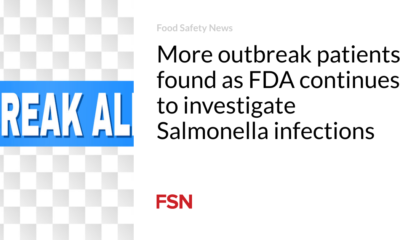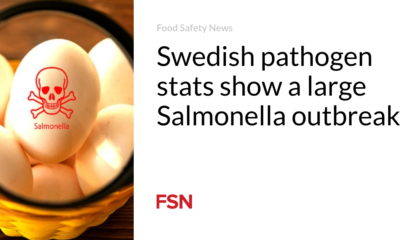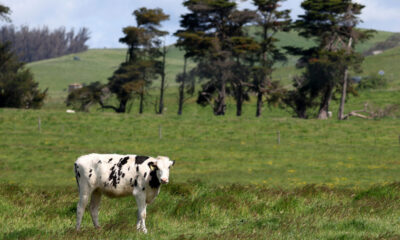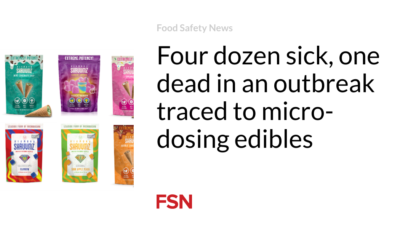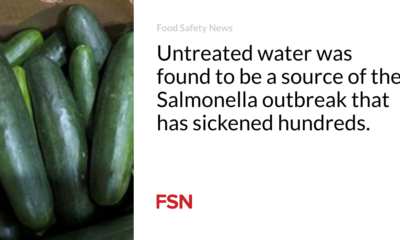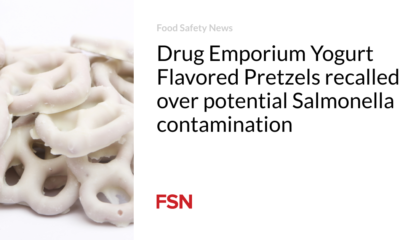Food
Multi-state Salmonella outbreak linked to backyard poultry
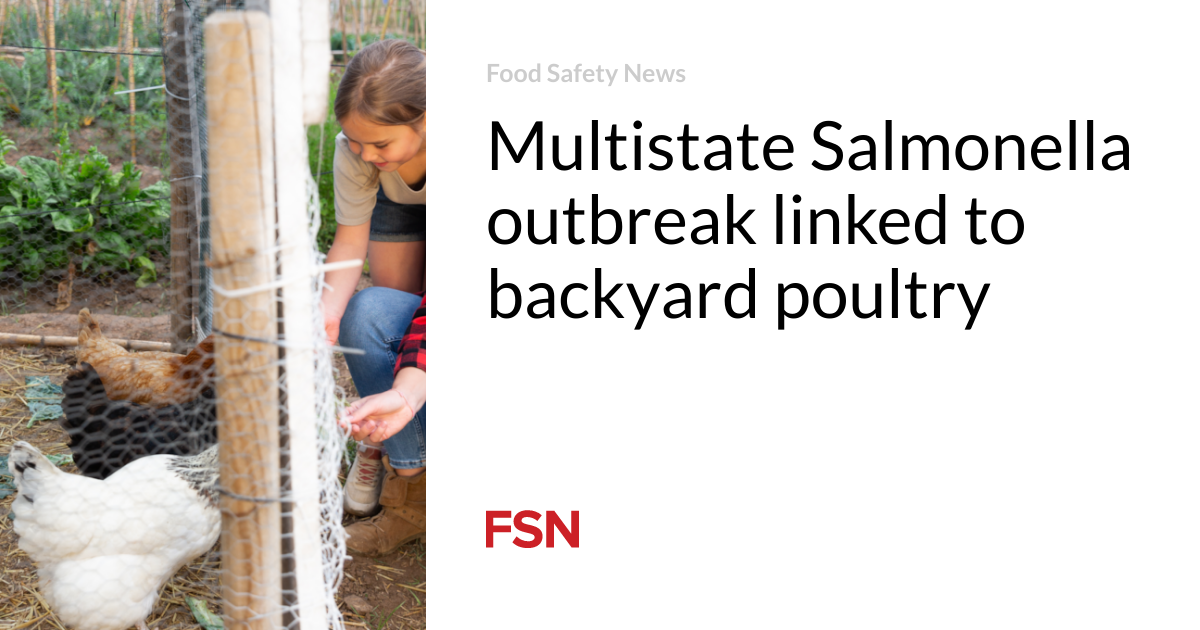
Public health officials are investigating an outbreak of Salmonella infections in multiple states linked to contact with backyard poultry. Since May 16, 109 people in 29 states have been infected with one of the outbreak variants of Salmonella. Although no deaths have been reported, 33 people have been hospitalized. The Centers for Disease Control and Prevention (CDC) emphasizes the importance of taking precautions when handling backyard poultry to prevent the spread of this bacteria.
Backyard Poultry and Salmonella
Backyard poultry, such as chickens and ducks, can carry Salmonella germs, even if they appear healthy and clean. These germs can easily spread to anything in the areas where the poultry live and roam. People can get sick by touching backyard poultry or anything in their environment and then touching their mouth or food, swallowing the Salmonella germs.
Epidemiological, laboratory and traceback data indicate that contact with backyard poultry makes people sick. The illnesses were reported from February 28, 2024 to April 30, 2024, and the actual number of sick people is likely higher than reported as many recover without medical care and are not tested for Salmonella.
Of those interviewed, 73 percent reported contact with backyard poultry, and 67 percent of those with available information had purchased or received poultry before their illness. The poultry was purchased from multiple stores and hatcheries, and no common supplier has been identified for all outbreaks.
Consumer safety tips:
To stay safe around backyard poultry and prevent Salmonella infections, the CDC recommends the following guidelines:
Wash your hands
Always wash your hands with soap and water immediately after handling backyard poultry, their eggs or anything in their environment. If soap and water are not available, use hand sanitizer. It can be helpful to keep hand sanitizer near your chicken coop.
Be safe around backyard flocks

Avoid kissing or cuddling poultry in the backyard and don’t eat or drink near them. This can spread Salmonella germs to your mouth and make you sick. Store your poultry and the supplies you use to care for them, such as feed containers and shoes worn in the coop, outside the house. Clean these supplies outside as well.
Supervise children around herds
Always supervise children around backyard poultry and make sure they wash their hands thoroughly. Children under the age of 5 should not touch chicks, ducklings or other poultry in the backyard because they are more likely to become ill from germs such as Salmonella.
Handling eggs safely
Collect eggs regularly, as eggs left in the nest can become dirty or break. Discard any cracked eggs, as germs on the shell can easily enter through the cracks. Clean eggs with a brush, cloth or fine sandpaper instead of washing them, as cold water can draw germs into the egg. Place the eggs in the refrigerator to keep them fresh and slow the growth of germs, and cook the eggs until both the yolk and white are firm. Cook egg dishes to an internal temperature of 160°F to kill any bacteria.
Keep an eye on your health
If you experience severe symptoms such as diarrhea and fever over 40°C, diarrhea that lasts more than three days and does not improve, bloody diarrhea, excessive vomiting that prevents you from keeping fluids down, or signs of dehydration (such as not passing much urine, dry mouth and throat, or dizziness when standing up), contact your doctor immediately.
Advice for poultry traders
Stores that sell backyard poultry should source birds from hatcheries that reduce Salmonella contamination by following USDA best management practices. Poultry exhibit areas should be cleaned and disinfected between shipments, and hand washing stations or hand sanitizer should be placed adjacent to poultry exhibit areas. Display poultry out of the reach of customers, especially children, to avoid direct contact. Provide health information to potential buyers, explaining how to stay healthy with backyard flocks.
Ongoing investigations
Public health researchers are using DNA fingerprinting to identify diseases that may be part of this outbreak. Samples collected from poultry shipping boxes in Ohio and Utah are consistent with Salmonella strains found in sick individuals. Although most people with Salmonella recover without antibiotics, some strains can be resistant, making treatment difficult.
The CDC continues to advise caution and good hygiene around backyard poultry to control the spread of Salmonella.
(To sign up for a free subscription to Food Safety News, click here.)

